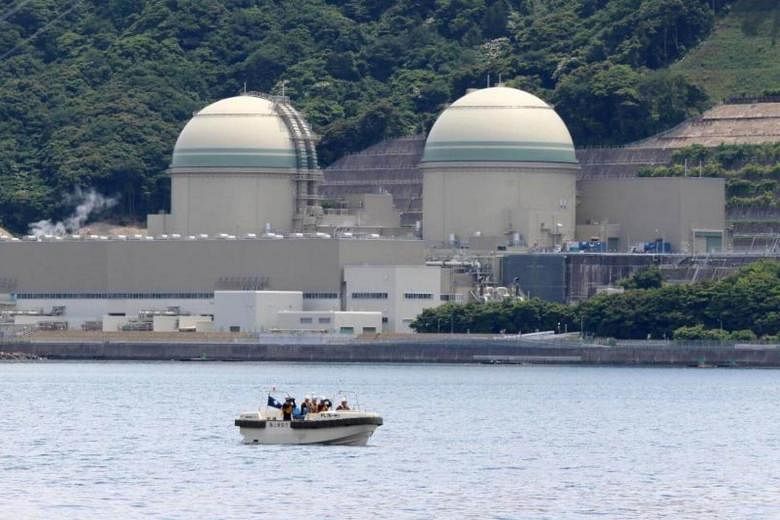TOKYO (AFP) - On Friday (June 30), three former executives at the operator of Japan's tsunami-stricken Fukushima nuclear plant went on trial, facing the only criminal charges laid in the March 2011 accident.
Here are some key developments in the worst atomic accident since Chernobyl in 1986:
- March 11, 2011 - A 9.0-magnitude earthquake strikes off Japan's northeast coast, causing a massive tsunami that destroys entire towns and villages along the Pacific shore, leaving nearly 18,500 people dead or missing The power supply and reactor cooling systems at the coastal Fukushima Daiichi nuclear power plant, about 220 kilometres (135 miles) northeast of Tokyo are damaged, causing fuel inside to overheat and meltdown.
The government issues evacuation orders to residents who live in the immediate vicinity of the plant. The government gradually expands the order.
- March 12, 2011 - Workers open a vent of a reactor, releasing pressure and radioactive fumes from inside.
The first of a series of hydrogen explosions at the plant rips through a building casing reactor number one, but the reactor itself remains intact.
Some 160,000 people living near the plant leave their homes.
- March 16, 2011 - Emperor Akihito makes an emergency television address in a bid to reassure a worried public.
- December 16, 2011 - Japan says it has tamed the leaking reactors with the declaration they are in a state of cold shutdown.
- June 11, 2012 - About 1,300 Fukushima residents file a criminal complaint against Tepco executives and other bodies over the accident, starting a series of legal complaints to be filed in connection with the disaster.
- June 20, 2012 - Tepco releases an accident report that says the tsunami's strength was beyond what could have reasonably been foreseen.
- July 4, 2012 - A panel of experts appointed by the parliament concludes its investigation into the accident. The panel says "it was a profoundly manmade disaster - that could and should have been foreseen and prevented." .
- September 7, 2013 - Prime Minister Shinzo Abe claims that the Fukushima crisis was "under control" in a speech to the International Olympic Committee.
Tokyo wins its bid to host the 2020 summer Games, but Fukushima plant work crews struggle to keep the situation under control, including trying to contain huge of amounts of waste water used to cool the crippled reactors. Decommissioning work is expected to take decades.
- September 9, 2013 - Prosecutors decline to press charges against former Tepco executives and other officials, saying there was little chance of conviction.
- July 31, 2015 - A judicial review panel composed of ordinary citizens rules - for the second time since the accident - that the three Tepco executives should be put on trial.
- June 30, 2017 - The three men plead not guilty to professional negligence resulting in death and injury.

